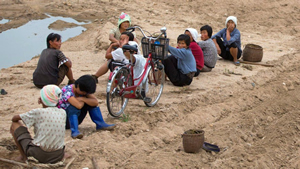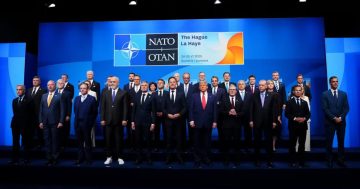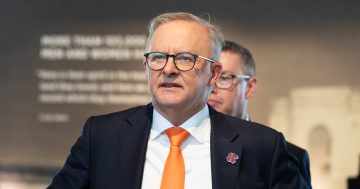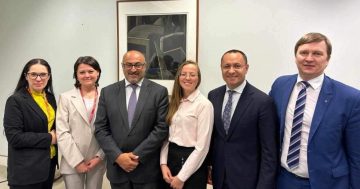Daniel Mitchum* says Kim Jong Un’s increasing problems at home present an opportunity for the United States to cut a deal.
 At North Korea’s Eighth Party Congress in January State-run media, as expected, extolled the virtues of Kim Jong Un’s leadership.
At North Korea’s Eighth Party Congress in January State-run media, as expected, extolled the virtues of Kim Jong Un’s leadership.
However, external news noted a peculiarity: Kim’s admission that almost all sectors of the nation’s economy failed to meet their objectives.
That Kim openly acknowledged such shortcomings during a major gathering should be taken as tacit recognition of the ghastly state of the nation’s economy.
Kim’s resurrection of the phrase ‘Arduous March’ during an April conference also hints at the North Korea’s difficulties.
Food security has become increasingly problematic and, with North Korea seeing its worst economic performance in two decades, Kim appears to be rolling back steps toward market liberalisation.
Two issues loom for which Kim cannot escape responsibility: One diplomatic and the other economic.
Kim played a central role in planning the summits of 2018 and 2019 with the United States. He also placed himself in the limelight during summits with his South Korean counterpart.
Initially, it appeared both would pay off: US President Donald Trump’s first summit with Kim in June 2018 ended with the joint signing of a document that contained rhetoric on a desire for peace, denuclearisation, and other commitments
Kim also made history by becoming the first North Korean leader to cross into South Korean territory.
However, dialogue in both realms fell flat. This began with the abrupt breakdown of the second Trump-Kim summit in February 2019, which ended in accusations from both sides that the other was unreasonable.
Trump stated that the breakdown was due to North Korean demands that sanctions be lifted in their entirety, while North Korea insisted that it had merely insisted on a partial lifting.
Perhaps assuming that Trump would be more pliant than his then National Security Advisor, John Bolton or Secretary of State, Mike Pompeo, it appears Kim sought high-level talks to be in the spotlight.
Staking so much on Trump’s instincts for deal-making appears an even worse decision following the US President’s failed re-election bid.
As for inter-Korean dialogue, both parties agreed to several compromises, including one to restore cooperation in the form of joint ventures such as the Kaesong Industrial Region and the Mount Kumgang tourism project.
This tokenism failed to produce tangible benefits; joint economic projects have yet to resume, and North Korea’s destruction of the Inter-Korean Liaison Office in 2020 literally and symbolically dismantled a platform for improved inter-Korea relations.
Kim’s non-performance in the diplomatic arena only compounded the failure of his five-year economic plan — and it was his economic plan, as he emphasised his role in the process in a way his father never had.
A moribund economy is nothing new for the North, yet some forecast a sea change upon Kim Jong Un’s ascent.
Having inherited a nascent nuclear weapons program, Kim enunciated his byongjin development policy, in which nuclear weapons would provide an environment secure enough to focus on economic development.
He crafted a development plan which included a softening of the collectivisation of agricultural policies, a shift from heavy to light industry, and the energetic pursuit of special economic zones.
The central authority afforded Local Governments a relatively free hand in their construction, with collaboration among private enterprises encouraged.
However, the Government recently declared that factories will be left to their own devices to secure raw materials.
A report from the 2020 Parliamentary session admitted for the first time in the country’s history that there had been flaws in the implementation of a national Budget.
Given the report’s modest growth goals for 2020, the State has likely experienced significant hurdles in collecting revenue.
All of this leads back to the Eighth Party Congress. In sharp contrast to his father, Kim has taken the responsibility for a failure in policy implementation.
His admission of failure at the Congress speaks volumes.
Whether the reported malcontent among North Korea’s elite is significant enough to alter Kim’s behaviour is unknown, but as long as he remains unwilling to bargain away nuclear weapons, sanctions will continue to weigh down the North Korean economy.
Kim’s strategy with the Biden Administration remains a mystery, with Pyongyang seemingly refusing diplomatic contact. However, amid Kim’s failures, the United States may have an opportunity.
While the Trump-Kim summits ended in failure, they exhibited that a break from tradition may open new doors.
Biden has confirmed his unwillingness to “sit down with Kim” shutting the door on a repeat of the Trump-Kim summitry, however his Administration could still begin exploring new paradigms, one being the de facto recognition of North Korea as a nuclear-armed State.
The Administration could negotiate recognition as a jumping-off point to curtailing ballistic adventurism and beginning arms control negotiations.
Given the state of its economy and Kim’s leadership, Biden might find Pyongyang receptive to agreements it usually would not entertain.
*Daniel Mitchum is a resident Kelly Fellow at the Pacific Forum. He has spent the past 12 years living and working in South Korea and can be contacted at [email protected].
A version of this article first appeared on the PacNet website.











